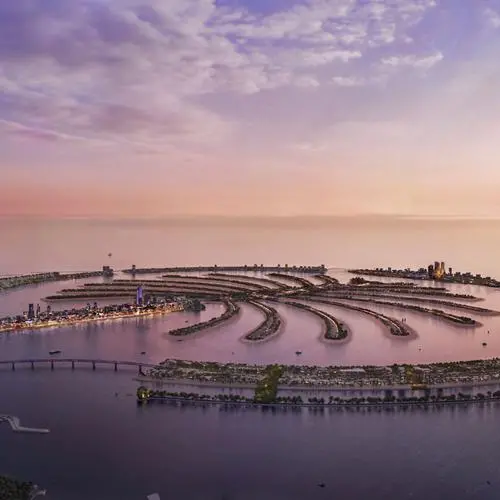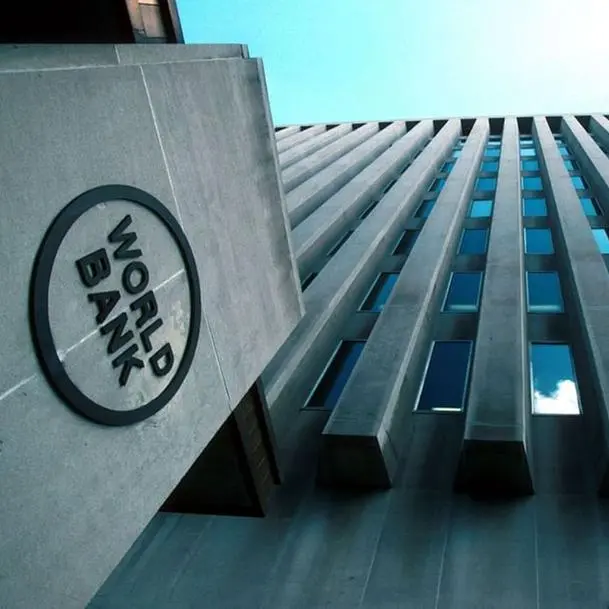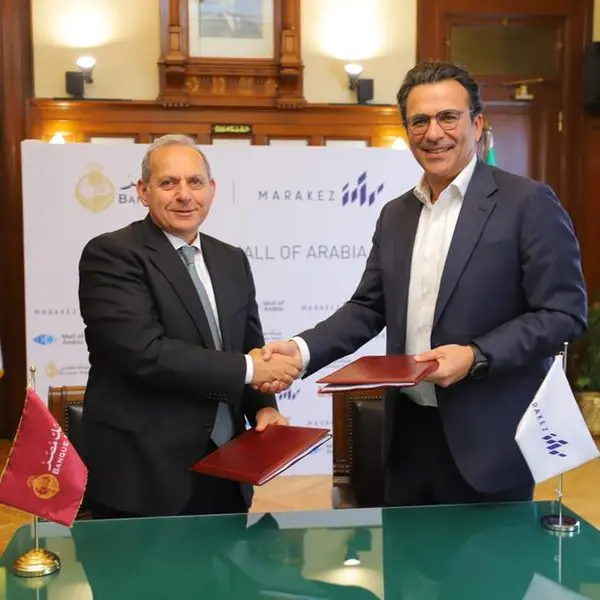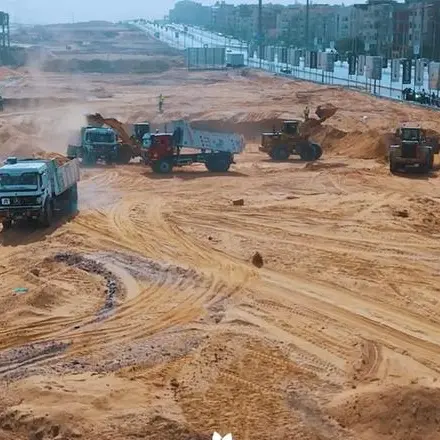PHOTO
Global Mobility leader Alstom is playing a pivotal role modernising Egypt’s transportation infrastructure while strategically positioning the country as a regional hub for railway technology, according to Ramy Salah Eldeen, Managing Director of Alstom Egypt.
Speaking to Zawya Projects, Salah Eldeen highlighted Alstom's portfolio including key initiatives such as the construction of the Cairo Innovia Monorail, the expansion of the Cairo metro network and the modernisation of the Beni Suef Assyut Mainline.
He emphasised that these projects go beyond infrastructure, driving societal and economic progress by enhancing safety, efficiency, capacity, and improving the daily lives of thousands of commuters.
The driverless Cairo Innovia Monorail system comprises a 57km line connecting the New Administrative City with East of Nile and a second 42km line connecting West of Nile with Giza served by 280 four-car Alstom Innovia 300 units. In August 2019, an Alstom-led consortium composed of Orascom Construction and Arab Contractors was awarded the contract to design, implement, operate, and maintain the two lines.
In Cairo Metro, Alstom's advanced signaling solutions have enhanced capacity and reduced travel times. Additionally, its energy-efficient Metropolis trains on Line 1 are set to improve passenger comfort, safety, and flow. The company is supplying 55 Metropolis trains (9 cars per train) as part of an agreement signed in November 2021 with National Authority for Tunnels (NAT) for Cairo Metro Line 1. The scope also includes an 8-year maintenance contract.
Earlier this year, Alstom completed the crucial Beni Suef Assyut (BSA) Mainline modernisation project. “By upgrading the signaling system, we've enabled higher speeds and increased passenger capacity, improving the overall travel experience for thousands of commuters,” said Salah Eldeen.
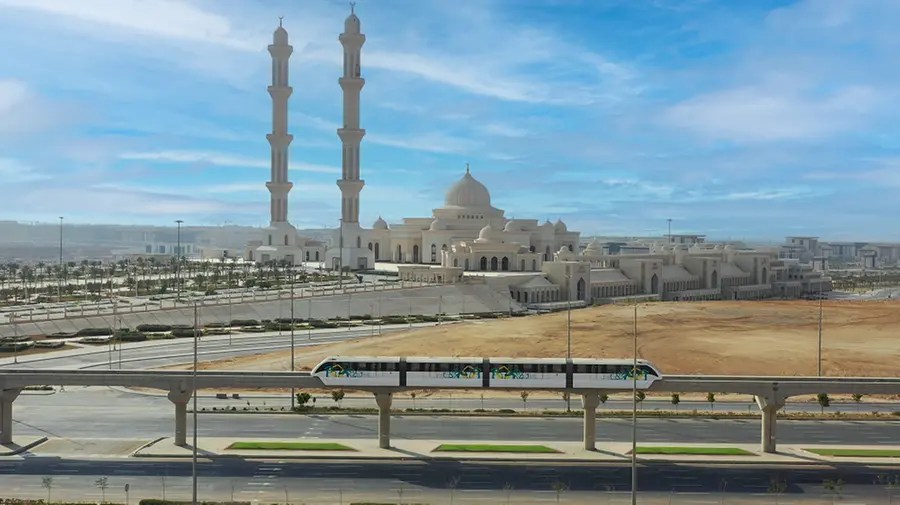

Environmental sustainability is also central to Alstom’s approach. The company’s projects emphasise public transportation to reduce greenhouse gas emissions and improve air quality while its trains and signaling systems are designed to optimise energy consumption, minimising the environmental impact of operations.
“Indeed, Metropolis trains can save up to 18.8 percent of the energy consumption,” Salah Eldeen explained. “With the support of signaling system the regenerative braking is maximised and can recover up to 99 percent of the braking energy.”
He also highlighted Alstom's commitment to sustainable practices, including using eco-friendly materials and construction techniques.
“By reducing carbon emissions, optimising energy consumption, and prioritising sustainable infrastructure practices, we aim to make a positive impact on the environment,” he said.
Excerpts from the interview:
What specific technologies and innovations is Alstom implementing in its projects in Egypt to enhance sustainability and efficiency?
At Alstom, we are committed to integrating cutting-edge technologies to drive sustainability and efficiency in our projects in Egypt. We are implementing advanced signaling systems like Urbalis, energy-efficient rolling stock, sustainable infrastructure practices, and digital solutions for real-time monitoring and predictive maintenance.
These innovations are aimed at reducing environmental impact, enhancing operational efficiency, and ultimately improving the quality of transportation services for the people of Egypt.
Our state-of-the-art signaling systems, such as Urbalis, optimize train traffic, reduce energy consumption, and enhance safety. As an example of Alstom signaling system deployed in CML3 ‘Urbalis 200,’ this system can achieve headway of three minutes, facilitate the trains movement and speed control in order to achieve braking energy recovery. Additionally, Alstom developed Urbalis 400 CBTC solution which enables braking energy recovery up to 99 percent.
Moreover, our trains are designed to minimise energy consumption and maximise efficiency. Advanced technologies like regenerative braking and lightweight materials contribute to reduced emissions.
How does Alstom collaborate with local stakeholders and government bodies to ensure the successful implementation of these projects?
Over 40 years of presence in Egypt, we have worked closely with entities such as the Egyptian National Railways Authority (ENRA) and the Ministry of Transport to ensure that our projects align with Egypt's development goals.
By engaging with local contractors, suppliers, and communities, we create sustainable job opportunities, stimulate economic growth, and minimize disruptions. This collaborative approach is key to the successful implementation of our projects and contributes to Egypt's sustainable growth and prosperity.
Our projects in Egypt are also designed to positively impact local communities by enhancing connectivity, accessibility, and overall quality of life. By seamlessly integrating with existing transportation networks, we aim to reduce traffic congestion, improve air quality, create job opportunities, and stimulate economic growth.
To ensure seamless integration with existing networks, we collaborate closely with local authorities and transportation planners. This involves careful planning, coordination, and the use of advanced technologies to optimise operations and minimise disruptions.
How does Alstom's presence in Egypt contribute to the company's overall strategy for growth in the Middle East and North Africa region?
Egypt serves as a strategic hub for Alstom's operations in the Middle East and North Africa (MENA) region. Our strong local presence, coupled with the expertise of our talented Egyptian workforce, positions us to drive innovation and deliver cutting-edge transportation solutions across the region.
By leveraging our state-of-the-art regional Engineering Centre, we are at the forefront of technological advancements in signaling systems. This centre of excellence not only supports domestic projects but also plays a pivotal role in regional expansion initiatives.
Egypt is actively involved in executing major signaling projects across the MENA region, including:
Tanzania: A 500km mainline project, encompassing 249km from Isaka to Mwanza, featuring advanced interflo 250 and ERTMS L1 signaling systems. This project will significantly enhance passenger and freight transport capabilities.
Morocco: The 492km Tanger-Kenitra high-speed rail line leverages Alstom's expertise in delivering efficient and reliable railway solutions.
Algeria: The Saïda-Tirat line, a 153km single-track railway equipped with interflo 250 and ERTMS L1 signaling systems.
Saudi Arabia: The AlUla tramway project, a unique solution that will serve the historical city of AlUla, featuring a 22.3km line with 17 stations.
Through these projects, Alstom Egypt demonstrates its ability to deliver complex, large-scale infrastructure projects. Our local teams provide a comprehensive range of services, including design, engineering, manufacturing, installation, testing, commissioning, and maintenance.
By capitalising on our strong local presence and global expertise, we are well-positioned to contribute to the sustainable development of the MENA region
What role does local talent play in your projects in Egypt?
We are committed to nurturing and empowering local talent in Egypt. By investing in our workforce, we not only drive innovation and efficiency but also contribute to the long-term development of the Egyptian railway industry.
Our state-of-the-art Engineering Centre has rapidly expanded, growing from an initial team of 30 talented engineers to over 98. Our engineers are at the forefront of cutting-edge signaling engineering activities, supporting both domestic and regional projects. In 2023, we inaugurated a new lab dedicated to operating system testing, enabling us to accelerate software development and deployment. Our goal is to further expand our team to 120 engineers by the end of financial year2024/2025.
Egyptian Railway Academy (ERA) is a collaborative initiative with the Egyptian Ministry of Transport to train and develop a new generation of railway professionals. Through a comprehensive curriculum, including master specialised, master training, and master expert programmes, we are equipping 300 engineers with the skills and knowledge needed to address the evolving challenges of the railway industry.
Alstom is dedicated to fostering a positive and inclusive work environment. By prioritising employee well-being, work-life balance, and professional development, we aim to create a sense of belonging and purpose for our people. This commitment was crowned by being recognised as a top employer in the Middle East.
What are the investments planned in terms of localisation?
We have taken significant strides to transfer knowledge and skills to our local workforce. Our state-of-the-art Engineering Centre is a testament to this commitment.
Currently, over 100 talented Egyptian engineers are actively involved in designing signaling systems not only for domestic projects but also for regional initiatives. This localisation strategy not only enhances operational efficiency but also positions Egypt as a regional hub for railway technology and innovation.
By investing in our local workforce and transferring cutting-edge knowledge, we aim to create a sustainable and skilled workforce. This will not only contribute to the growth of Egypt's railway sector but also establish the country as a potential exporter of railway expertise to neighboring markets.
What future projects or expansions does Alstom envision in Egypt?
Alstom is committed to enhancing sustainable transport solutions in Egypt and is continually exploring opportunities for future projects and expansions in the region. We aim to contribute to the development of efficient and innovative mobility solutions that align with Egypt's economic growth and infrastructure goals.
(Reporting by Marwa Abo Almajd; Editing by Anoop Menon)
Subscribe to our Projects' PULSE newsletter that brings you trustworthy news, updates and insights on project activities, developments, and partnerships across sectors in the Middle East and Africa.

